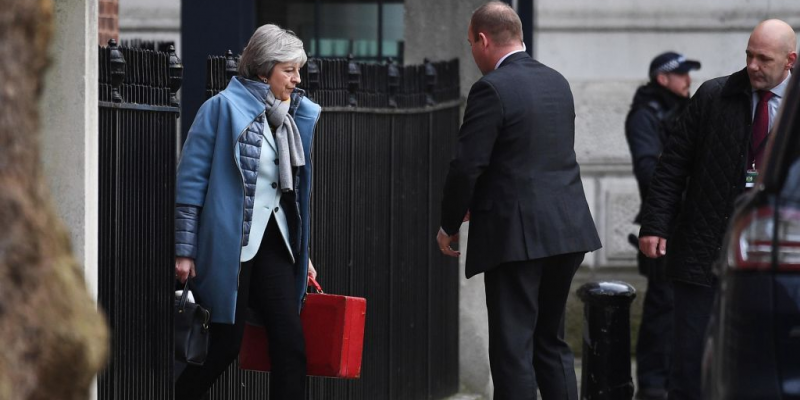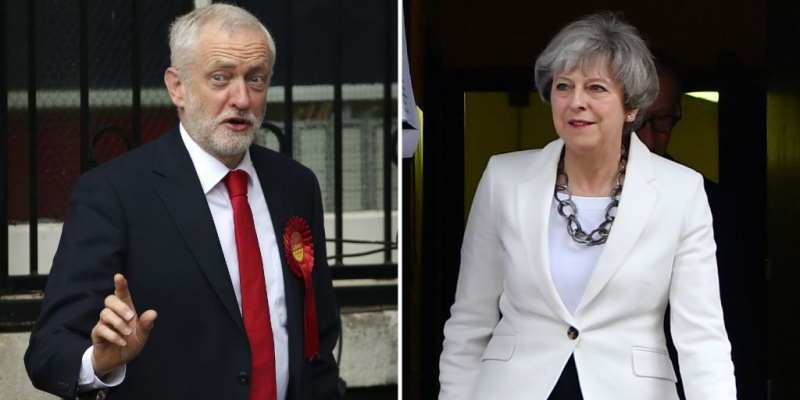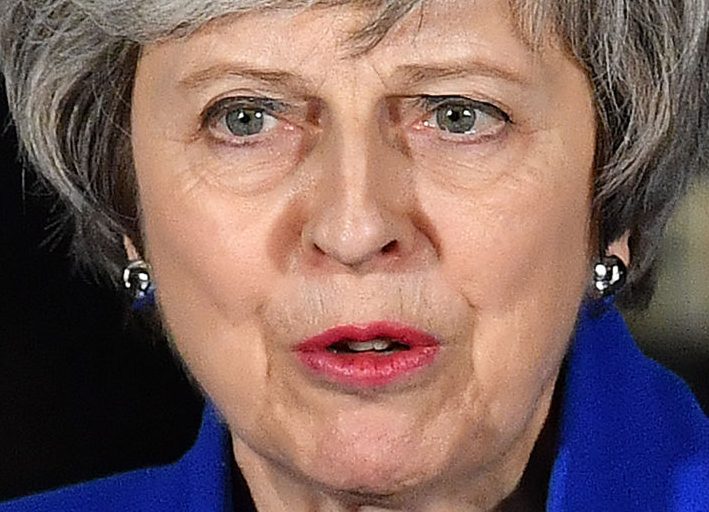- Theresa May reached out to opposition parties this week after her Brexit deal suffered a historic and crushing defeat in a House of Commons vote.
- The deal was rejected by 432 votes to 202, with more than 100 MPs from her own party voting against her.
- However, expectations that she would compromise on her deal failed to be realised this week.
- Opposition MPs who met with May and her team speak to Business Insider about their frustration with May’s refusal to budge as Britain heads towards a chaotic no-deal Brexit.
LONDON – After the historic defeat of her Brexit deal in the House of Commons this week, there was widespread speculation that the prime minister would swiftly make major concessions to her opponents in a bid to salvage something from the wreckage of her deal.
At first, it appeared that such a move may be on the cards, with May announcing to Parliament that she would seek talks with opposition parties about finding “a way forward.”
“I would like to invite the leaders of parliamentary parties to meet with me individually, and I would like to start these meetings tonight,” May told MPs in the aftermath of winning a no-confidence vote in her government.
However, responding to her statement, the opposition Labour party leader Jeremy Corbyn surprised many by refusing.
"Before there can be any positive discussions about a way forward, the government must remove clearly, once and for all, the catastrophe of the prospect of a no-deal Brexit with the EU," Corbyn said.
May immediately jumped on his refusal, later staging a late-evening speech from the front steps of her Downing Street residence in which she lambasted the Labour leader for refusing to talk.
Commentators also rounded on Corbyn, comparing his unwillingness to speak to the prime minister with his previous public support for talks with Hamas and President Assad of Syria.
But Corbyn's team had sensed straight away that May's request was not a serious attempt to reach out, with sources close to the Labour leader telling Business Insider that there had never been any real intention to engage in a discussion between the two leaders, and absolutely "no attempt to reach out through the back-channels."
Most of it was them batting away our requests rather than trying to make them work.
And as the talks began, the Labour leader's decision to boycott the talks was arguably vindicated after MPs from all parties described a prime minister and her advisers who refused to give ground.
At the meetings organised by May, opposition MPs all had their own lists of demands and conditions for backing a Brexit deal rejected.
The Liberal Democrats, Scottish Nationalist Party, Plaid Cymru and Green Party all demanded a second Brexit referendum and called on the prime minister to promise to rule-out a no deal Brexit. Meanwhile, Labour MPs who met with the prime minister and her advisers demanded she offer a permanent customs union.
In all of those meetings, Downing Street made it clear that none of their demands would be met.
"There was a lot of listening but not a great deal of substance. Most of it was them batting away our requests rather than trying to make them work," one source who attended the meetings told BI.
A botched briefing

Following one such meeting, the government decided out of the blue to supply journalists with a briefing note claiming that it would take over a year to organise a referendum on Brexit.
Downing Street gave the note to journalists after cross-party meetings on Thursday. Environment Secretary Michael Gove and May's de facto deputy David Lidington revealed the note to opposition MPs in those meetings.
The substance of the note infuriated opposition figures, however. One Lib Dem source told BI it was "absolutely indefensible," pointing to research by both the Institute For Government and University College London which said a referendum would take 20 weeks.
One source who attended the meetings told BI: "The only point they [government ministers] made that's a legitimate issue for us is that the Electoral Commission requires 10 weeks of campaigning.
"Other than that it is total bulls**t."
Meanwhile, the Scottish National Party leader in Westminster, Ian Blackford, who met with May on Wednesday, told BI that the prime minister's rejection of holding a second referendum and claim that organising one would take more than a year was "pathetic."
"I'm not encouraged by the government spinning to say it's going to take a year to legislate for a People's Vote," Blackford said.
"Frankly, that's pathetic. What appears to be a cheap attempt to kibosh talks is not going to work. For once, the prime minister has got to stop looking at this as an internal Tory division."
What appears to be a cheap attempt to kibosh talks is not going to work. For once, the prime minister has got to stop looking at this as an internal Tory division.
He suggested that the party was now reluctant to continue talks. "We're still in dialogue with Downing Street but I really don't take kindly to this approach."
It was not just the note's substance that raised eyebrows. The government's decision to even publish the document created confusion, given that the main consequence of it was to provide oxygen to a subject that the prime minister would really rather not discuss.
However, multiple sources have told BI that Downing Street only decided to publish the confidential note because Gove and Lidington had accidentally let opposition party representatives leave the meeting with their own copies.
This created panic within the government that opposition parties might decide to publish or leak the note themselves, hence the decision to give it to journalists first. The note was intended to remain confidential and within the four walls of the meeting room.
'Because we do not want to do it'

Asked on Thursday why the prime minister had called for talks with opposition leaders, only to then refuse to offer them anything they wanted, her official spokesman replied that "the prime minister has set out over many months now what she believes the British people voted for and what she believes is needed to honour the result of the referendum, and she stands by those principles."
They added: "Where people have pre-existing positions, of course they will want to make their arguments for them and the prime minister will listen, but you understand the principles the prime minister holds which are to honour the results of the referendum."
Asked whether the government would consider a permanent customs union, ruling out no-deal, or holding a second referendum - all key opposition demands - May's spokesman replied that they would not.
Asked why the government was refusing to consider extending the two-year Article 50 process by which Britain will leave the EU, something which a majority of commentators and politicians in Westminster now accept has to happen, May's spokesman replied that it was "because we do not want to do it."
Many commentators assume that the prime minister will eventually simply have to give ground to avoid a chaotic exit from the EU.
But with just weeks until Britain is scheduled to crash out of the EU, there is little sign that she is prepared to do so.
